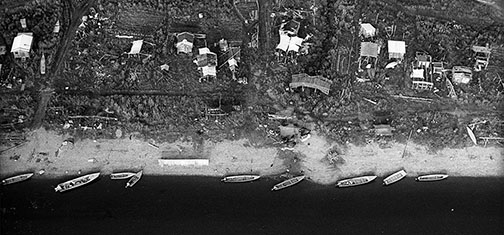Thousands of Alaskans – in villages, in cities, in camps – are nourished and sustained by country foods. They harvest country foods from the land, the air, the sea, and the ice. They process these foods with loving hands. They gratefully share these foods with their families and communities. They use country foods in different ways. They hunt, fish, and gather to feed themselves, their families, and their communities. Some fish or trap for commercial markets. Some fish for recreation, sometimes releasing their catch. Some make art and crafts for sale, and some barter or trade country foods.
Hunting, fishing, and gathering and are fundamental to Alaskans’ identities. Yet…rich Alaska traditions of living with the land and with each other have been eroded by disputes over resource allocations, government jurisdictions, and advocacy involving tribal, state, and federal governments. There is no single body of law that provides for subsistence in Alaska, but a series of unrelated laws and treaties with other nations in which subsistence was not the primary focus. Consequently, subsistence management requires working across institutions, across species, across geographic boundaries, and across cultures.
The Division of Subsistence – a social-science research group embedded in the Alaska Department of Fish and Game - has been at the center of subsistence management in Alaska since 1978. The Division's mission is to scientifically gather, quantify, evaluate, and report information about customary and traditional uses of Alaska's fish and wildlife resources. Their research has been central to fish and wildlife management in Alaska, and important in documenting cultural traditions of subsistence, informing international negotiations over migratory birds and fish community, and addressing impacts of resource development on subsistence.
 Discussions with contemporary Alaskans suggested that many were not well informed about subsistence management. Few appreciate the legal constraints on management bodies. Outside the subsistence research community, few talk about how early approaches to subsistence research were developed and how they influenced management decisions. This oral history project explores how subsistence researchers attempted to develop effective and credible research programs in an intense political environment.
Discussions with contemporary Alaskans suggested that many were not well informed about subsistence management. Few appreciate the legal constraints on management bodies. Outside the subsistence research community, few talk about how early approaches to subsistence research were developed and how they influenced management decisions. This oral history project explores how subsistence researchers attempted to develop effective and credible research programs in an intense political environment.
Alaska's Subsistence Research Legacy Project Jukebox is the result of a series of panel sessions and oral history interviews with active and retired subsistence researchers, subsistence users, subsistence research program administrators, and others active in subsistence research and management in Alaska. The project was the brainchild of Dr. Jim Magdanz, retired subsistence researcher with the Subsistence Division, Alaska Department of Fish and Game and Dr. William Schneider, retired curator of history and professor of Anthropology, University of Alaska Fairbanks. Originally developed in 2019, the idea was to host a two-day in person workshop where former Division staff and researchers, wildlife manageers, policy makers, and Native leaders could interact and discuss the origins and status of today's subsistence resarch and management programs as an exchange between generations. However, due to the dangers of in-person gatherings during the COVID-19 pandemic, in August 2021 the workshop format was changed to a series of on-line Zoom sessions with a small group of presenters focusing on different topics at each session. The topics were:
- Indigenous Perspectives: Indigenous relationships with the natural world, and visions for future natural resource relationships between the federal, state, and tribal governments.
- Legal Foundations for Subsistence Management: Legal foundations that influenced the evolution of subsistence research to address resource and user concerns. ANCSA. ANILCA. MMPA. Waterfowl Treaty.
- Theoretical Foundations for Subsistence Research: In 1980, many Alaska resource managers saw subsistence primarily as a harvest enforcement problem, and Indigenous subsistence as archaic practices soon-to-be extinguished if not already dead. Early Division leaders resisted being drawn into a harvest enforcement role and argued against the extinguishment narrative. Thus began the 41-year history of Division research and evolving research approaches to understand subsistence in Alaska.
- From Qualitative to Quantitative: While the Division did employ a variety of methods, over time it relied increasing on survey approaches that included harvest estimation. Why?
- Applications of Subsistence Research: The Division’s research identity focuses on resource management. Yet, paradoxically, substantial funding for the Division has been related to non-subsistence development projects, both pre- and post-development impact assessments. Why?
- International Dimensions: Some species used in Alaska for subsistence are used in other states and other countries, notably migratory birds and Yukon River salmon. Examples of contributions the Division has made to cross-boundary efforts to manage these resources and uses.
- Subsistence Research: Past and Future: What do others interested in subsistence policy see as the Division’s strengths and weaknesses? What opportunities did the Division miss? How
In addition, some one-on-one oral history interviews were conducted remotely with key people who were unable to participate in the panel sessions.
Thanks go to the George and Betty Moore Foundation for funding, staff of the International Arctic Research Center (IARC) at UAF for adminstrative support, and the following participants for their assistance in planning and carrying out this project:
- Denny Takahashi-Kelso, Director of the Marine Conservation Program, The George and Betty Moore Foundation
- Sarah Trainor, Associate Research Professor at IARC and Director of the Alaska Center for Climate Assessment and Policy (ACCAP)
- Caroline Brown, Research Manager and Northern Region Program Manager, Subsistence Division, Alaska Department of Fish and Game (ADFG)
- Karen Brewster, Project Jukebox, UAF
- James Fall, Retired and Former Director, Subsistence Division, ADFG
- Henry Huntington, Huntington Consulting

